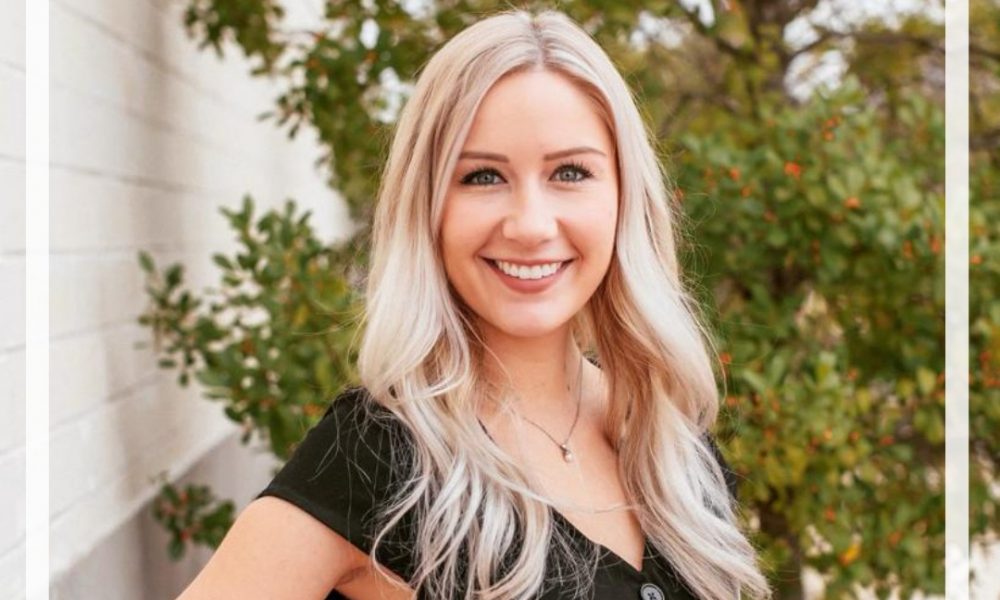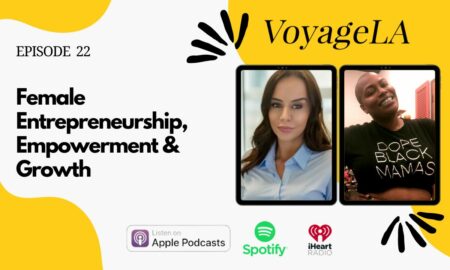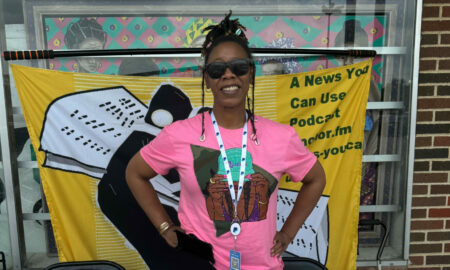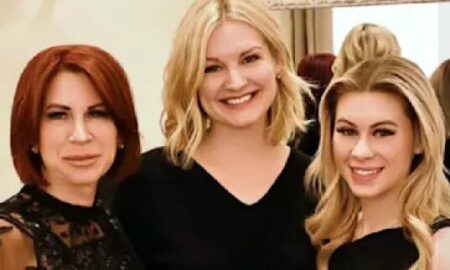

Today we’d like to introduce you to Julianna Navarro.
Hi Julianna, thanks for joining us today. We’d love for you to start by introducing yourself.
I decided to have a career in Marriage therapy when I was going through my master’s of the counseling program at A&M University-Corpus Christi. I was about 22 when I knew what I really wanted to do, but my fascination in psychology began when I was a young girl. My mother is a psychologist and she would always explain to me concepts of the human mind, limitations of humans and rationalize human behavior down to a science. I was hooked. I loved figuring out why people do what they do, what drives their behavior and, as a result, how that affects other people to create this larger system that we call society. My drive to work with couples matured as a went through the counseling masters program, and I saw an untapped field in itself. There is a lot of information out there about relationships, but honestly, most of it is unorganized, not backed by adequate research, and either written from a jaded or naive writer. It bothered me that I didn’t see an effective system in place to help a large population in need, couples.
My philosophy is that all couples can improve their relationship, no matter how “great” you think your relationship is, there is always room to improve, learn your partner, and if not restore then enhance your connection with one another. Human connection is this special, intangible process that we all crave as an individual need in this life. The problem is created when we don’t know how to achieve that connection. That is where I come in. Most people think therapists just listen to a myriad of problems, nod and say “uh-huh, and how does that make you feel” only to leave the problem still floating around, but all the while making you feel a little bit better about your issues with this technical validation any therapist knows how to do. However, therapy is much more than that. I strive to restore human connection with the special people that exist in your life that you want to rebuild and maintain a healthy connection with.
This includes the client’s responsibility of gaining awareness into these issues and into their past, learning new skills from psychoeducation, and having the motivation to make small changes that will lead to a big impact of increased satisfaction on their daily life. This is the process of therapy and the work I do day in and day out, and I love it. I ask myself, “What could be better than deconstructing and re-building healthy human connection?” I feel satisfied when I get to help a couple improve their relationship or come to a sound and healthy decision that their relationship is no longer working for them. I could not ask for a better job, and I try to take each day as a learning experience where I can learn just as much about human behavior from their personal experience they share with me as they can learn from my expertise in couples therapy. As far as exactly how I ended up in this position, I’m not too sure. I think somewhere along the lines, I just followed my heart and did what felt right for me at the moment, with the future in mind. I can pinpoint one defining moment where I changed my major during my undergrad in college from pre-med to psychology and I couldn’t have been more affirmed in my decision once I did it. It felt liberating, exciting, and new, but most of all, it just felt right.
Can you talk to us a bit about the challenges and lessons you’ve learned along the way. Looking back would you say it’s been easy or smooth in retrospect?
I think the biggest struggle for me was finding the right mentors along the way. Every therapist has their own style that they build off of and implement in the therapy room. Starting off as a student shadowing multiple therapists, I was always looking for the “right way”. The right way to respond to the client, the right technique to use for their presenting concern, the right educational material to help them learn. I was so focused on therapy being perfect that I neglected the most important concept of all, connecting with your client. People often just want someone to listen to them with understanding, unconditional positive regard, and acceptance. Validation of their emotions and human experience are also important to make the client feel heard. Once I learned this concept in my training program and had the chance to practice it with clients, I felt certain I was in the right field. Listening and understanding other people’s perspectives and feelings come naturally for me, and it even can be fun at times. I love when I learn something new from a client and get to apply that to my life as well. Now, I have amazing mentors to me (Maribel Corona, LPC-S) who listen and support my needs when it comes to professional growth in this therapy field. I am very thankful to have that kind of support.
Thanks for sharing that. So, maybe next you can tell us a bit more about your work?
As a relationship therapist, I provide a safe place in a therapeutic environment where clients can explore solutions to life’s many challenges and learn to improve their daily life satisfaction. Primarily I work with couples on all areas of concern, including pre-marital, infidelity, divorce, communication, sexual intimacy, loss of love/affection and financial concerns. I also really enjoy working with individuals on relationship concerns, anxiety, and loss of identity issues.
I received my Gottman Level I certification to work with couples, and I use an eclectic approach to therapy consisting of Gottman, Emotion-Focused Therapy and Cognitive Behavioral techniques. I earned her Master’s in Marriage Counseling from Texas A&M University Corpus-Christi. Julianna is an LPC-Associate under the supervision of Maribel Corona.” Working with couples is my passion. I wouldn’t enjoy my job like I do today and get as much joy out of the work I get to do every day if it weren’t for the couples I see every day. I get to see their relationship grow and see their connection reignite again as if it were their first date all over again and they had fireworks. I am always asking myself, “what job could be better than that?”
Is there a quality that you most attribute to your success?
I think the ability to listen to others and hear them in their truth is very important. We may have opinions as humans, but as a therapist, your job is to understand the client’s perspective, the client’s feelings, and the client’s world, not compare it to yours. That is hard to learn to do, but once you learn that skill, you become a very good listener in all areas of your life. Non-judgement is also very essential to the therapeutic process. We exhibit non-judgment for our clients and encourage them to do the same for others. Non-judgment helps us decrease comparisons, which comparisons often lead to feelings of inadequacy.
We teach people this process of non-judgment by leading with an example, of course. Validating someone’s feelings is crucial. We invite open connection by creating a safe place for someone to be vulnerable. Some people have never had a safe place to express themselves, and we provide that environment for them in the therapy room. Client’s learn that their feelings should never be invalidated, ever. We feel what we feel when we feel them. It is our responsibility to manage the emotional expression of those feelings so that they do not cause harm to ourselves or others, but we should practice acceptance over every feeling that passes through our body. These a just a few key concepts we teach and practice in therapy.
Pricing:
- $90 Individual session (1hr)
- $450 3-day Couples Intensive Therapy package (6hr)
Contact Info:
- Email: julianna@mindsinactioncounseling.com
- Website: https://mindsinactioncounseling.com/about/
- Facebook: facebook.com/julianna.navarro.couplestherapy
- Other: https://www.psychologytoday.com/profile/707370






















